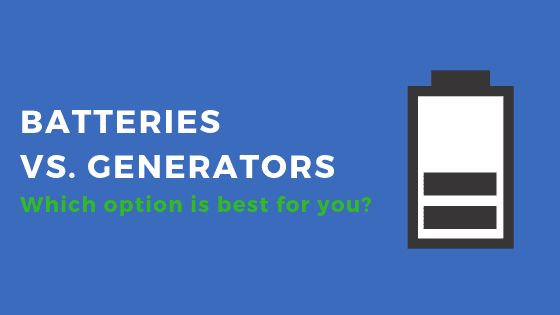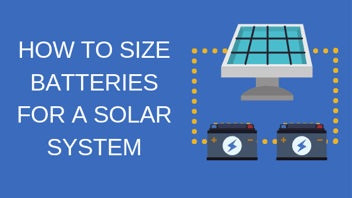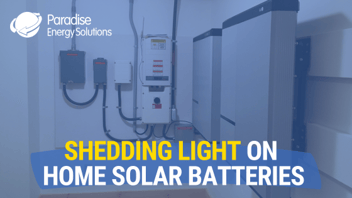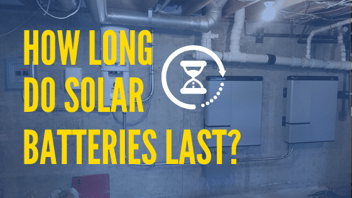Backup Batteries vs. Generators: Your Ultimate Energy Backup Guide

When power outages strike, having a reliable energy source is crucial. For decades, generators have been the go-to option, but the rise of solar technology and the decreasing cost of backup batteries are changing the game.
This blog explores backup batteries and generators to help you decide which backup power solution best suits your needs.
Understanding Generators as a Backup Option
Generators have long been favored for their immediate power supply during outages. However, their dependence on fuel, noise, and emissions are significant drawbacks. But first, let's discuss what makes generators a popular option.
The cost is the primary benefit of using a generator over a solar-powered storage combination. There are many different models and brands for you to pick from. Unlike solar batteries, many generators can be purchased at your local hardware store.
Most generators can also be transported and used at your location of choice. This makes it easy to supply power wherever you need it. You're just limited to the amount of fuel you're able to store and transport.
One of the biggest downsides to using a generator is that you're dependent on outside fuel sources. These sources have the potential to run out of fuel during a natural disaster, or they can become costly. Generators also create fumes that are not good to breathe. This means they need to be placed outside in a well-ventilated area, which could create challenges when weather conditions are poor.
The Rising Star: Backup Batteries for Energy Storage
The main benefit of using a solar with batter combination is the free fuel source. There is continued access to that fuel during a natural disaster as long as the sun shines and the system is not damaged. A solar system with battery storage is also quiet and environmentally friendly, both benefits that a typical gasoline generator cannot claim.
The downside to a solar with storage combination is the cost. In most cases, a solar system can pay for itself relatively quickly by reducing your electric bill and other financial incentives. However, a battery storage system can be expensive, and the only payback is that it allows you to store energy for later use. You will likely not see a financial return from just the batteries.
The batteries also require space. This will vary based on the battery you use and the amount of energy storage you require. The good news is that batteries continue to get smaller and more condensed as technology advances.
Financial Comparison: Backup Batteries vs. Generators
Gasoline generators range from a few hundred dollars to several thousand dollars depending on how much energy you need to produce - a few outlets vs. a full house backup. The cost for a battery system to be installed with a solar array can vary. The smallest battery currently offered by Paradise Energy Solutions is a 9.3 kWh battery. It can store enough power to run a 1,500-watt heater for over 6 hours. That battery cost about $15,000 with the installation. A battery system to back up your whole house could run in excess of $100,000 after the installation costs.
Related Post
The Factors The Influence the Cost of A Solar System
Leveraging Incentives for Backup Battery Installation
In most cases where the batteries will be charged from solar only, the 30% federal solar tax credit also applies to the battery system. Accelerated depreciation may also be available for commercial systems. Please note that we encourage you to contact your tax advisor to review your particular situation before purchasing a system.
Some states are also providing incentives for battery systems. Maryland currently has a state tax credit for 30% of the cost of a battery system, which goes up to $5,000 for homeowners and $75,000 for businesses. Other states such as New York and New Jersey are considering incentives and could soon follow in Maryland's footsteps.
Final thoughts: Choosing Your Ideal Backup Power Solution
In most cases, the decision for one backup energy source versus the other will come down to cost. Using a generator is currently the most cost-effective backup solution and most times the easiest to implement. However, as the costs of solar panels and batteries continue to decrease, a solar with storage combination will make sense for more people.





